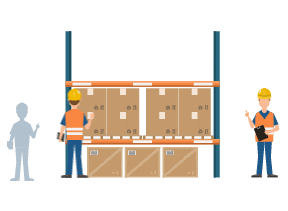
Warehouses are essential for businesses of all sizes, as they provide a place to store goods and materials until they are needed. There are many different types of warehouses, each with its own unique purpose and features. In this blog, we will discuss some of the most common types of warehouses and their uses.
Public Warehouses
Public warehouses are owned and operated by a third party, such as a government agency or a private company. They are available for rent to businesses that need to store goods and materials. Public warehouses are a good option for businesses that do not need to store large amounts of inventory or that need to store inventory in multiple locations.
Private Warehouses
Private warehouses are owned and operated by the business that uses them. They are typically located close to the business's manufacturing or distribution facility. Private warehouses offer businesses more control over their inventory and operations. However, they can also be more expensive to operate than public warehouses.
Cold Storage Warehouses
Cold storage warehouses are used to store perishable goods, such as food and medicine. They maintain a constant temperature to prevent the goods from spoiling. Cold storage warehouses are essential for businesses that need to store large amounts of perishable inventory.
Bonded Warehouses
Bonded warehouses are used to store goods that are subject to import duties or taxes. These warehouses are licensed by the government and are under the control of customs officials. Bonded warehouses are a good option for businesses that import goods frequently.
Distribution Centers
Distribution centers are used to store and distribute goods to retailers and consumers. They typically have a high volume of inventory turnover and are located close to major transportation arteries. Distribution centers are essential for businesses that have a large customer base.
Smart Warehouses
Smart warehouses use technology to automate and optimize warehouse operations. They typically have sensors, robots, and other automated equipment that can track inventory, move goods, and pick orders. Smart warehouses are becoming increasingly popular as businesses look for ways to improve efficiency and reduce costs.
Consolidated Warehouses
Consolidated warehouses are used to combine multiple shipments into a single shipment. This can help businesses save money on transportation costs. Consolidated warehouses are a good option for businesses that ship large amounts of goods.
Cooperative Warehouses
Cooperative warehouses are owned and operated by a group of businesses. They are a good option for businesses that need to store inventory but do not want to invest in their own warehouse.
On-Demand Warehouses
On-demand warehouses are used to store overflow inventory. They are typically rented on a short-term basis and can be scaled up or down as needed. On-demand warehouses are a good option for businesses that experience fluctuations in inventory levels.
Conclusion
The type of warehouse that you choose will depend on your specific business needs. If you are not sure which type of warehouse is right for you, you should speak with a warehouse management consultant.
I hope this blog has been helpful. Please let me know if you have any questions.
